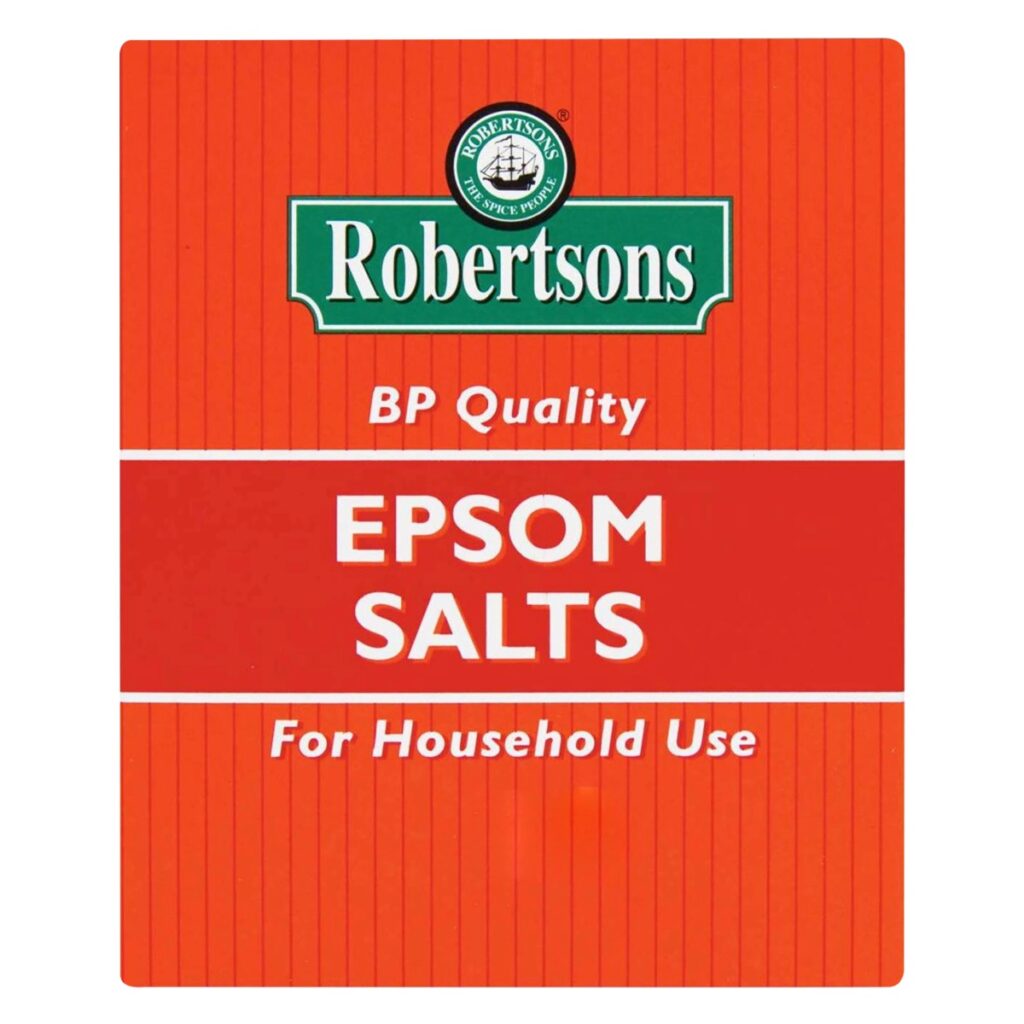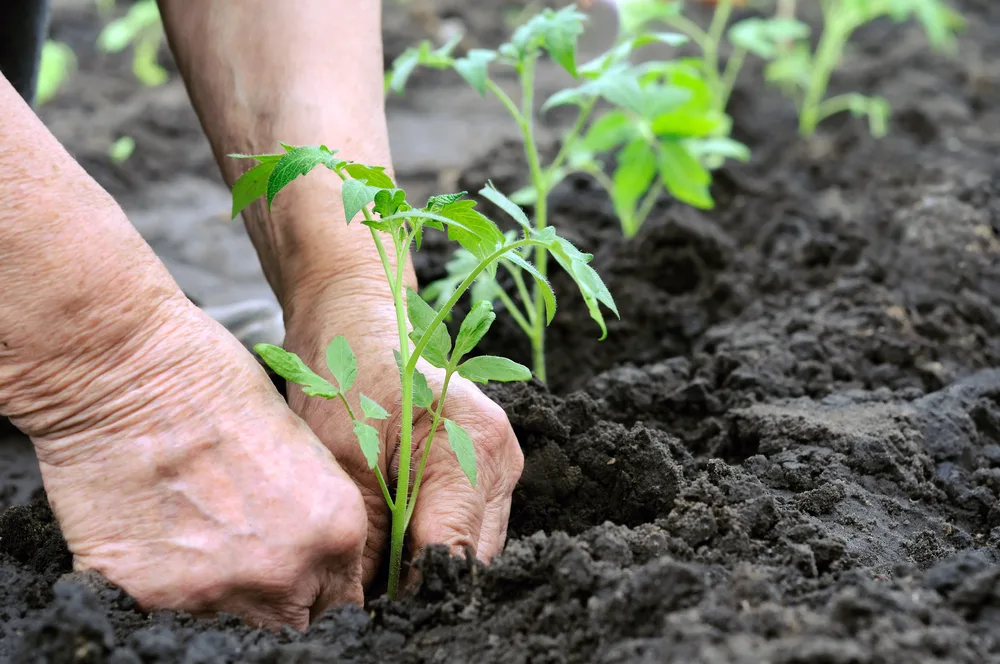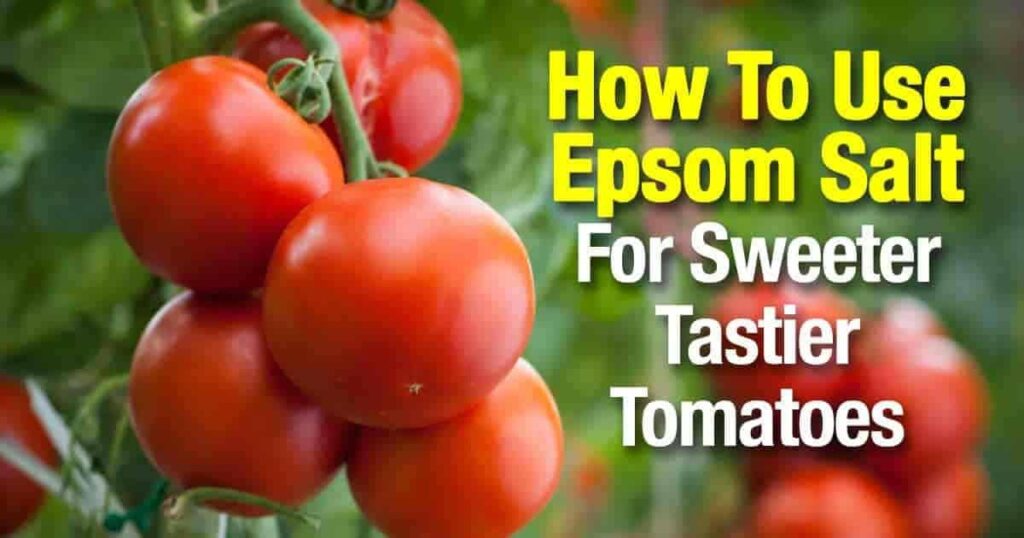You may not know it, yet numerous gardeners depend on Epsom salt as an unmistakable advantage in their natural and organic gardens.
It is generally better to focus on restoring or maintaining natural systems in your growing areas. But using this natural ingredient to make a range of soil amenders and foliar sprays, and using it in a range of other ways, can help you keep you and your garden in good health.
In this article, we will discuss 10 or more uses for Epsom salt in the garden.
But before we delve into the different options for its use, let’s take a brief look at what Epsom salt is, and how, in broad strokes, it can help your plants.
What is Epsom Salt?

Epsom salt is a chemical compound that is made up of magnesium, sulfur and oxygen. It is also known as magnesium sulphate.
It has long been used in agriculture and gardening, and also has applications in other fields, such as the medical arena, brewing and food preparation.
You may be most familiar with it through its use in bath salts.
Why Epsom Salt Can Help Plants

Magnesium and sulfur are two of the essential minerals for plant growth. Magnesium is needed by plants to create healthy leaves and for photosynthesis. Sulfur is one of the molecular building blocks for a number of different proteins, vitamins, and hormones in plants. It also plays an important role in water equilibrium in plants (and in soil). Epsom salts can be used to create soil amendments or in foliar feeds sprayed onto leaves (due to their high solubility) to provide these two essential ingredients for plant health.
In addition to being used in such ways, Epsom salt can also be used to deter or kill certain pests if a major infestation occurs, or certain wildlife is causing a major problem for you in your garden.
20 Uses for Epsom Salt in Your Garden:
To help you understand how to use Epsom salt in your garden, let’s take a look at some of the uses to which it can be put:
1. To Give New Growing Areas a Good Start

If you have created new growing areas in your garden, you can help things get off to a good start by incorporating some Epsom salt into the soil/growing medium. This can be a good idea in areas where the soil has been made alkaline by high concentrations of sodium salts, for example.
Adding magnesium can help to improve the pH and make it closer to neutral.
Note, however, that it is generally a good idea to have a soil test before applying nutrients to the soil, as if you get it wrong, you could do more harm than good. If you have determined that adding Epsom salts to the soil is the right thing to do, broadcast 1 cup per 100 sq ft area and mix well into the soil before planting up the area.
2. To Improve Seed Germination Rates
While it may not be a good idea to introduce larger quantities of Epsom salt into your soil without investigation, you could still consider adding a teaspoon or two to your potting mix when sowing seeds in order to give plants the best start possible.

Mixing a little into your soil/ compost can improve the germination rates since magnesium is essential for successful germination.
3. To Give You Healthier, Sweeter Tomatoes

It is not uncommon to see magnesium deficiency in tomatoes grown in polytunnels with light and sandy soils.
The over-use of tomato fertilizers that are high in potassium can cause magnesium deficiency, as plants take up potassium in preference to magnesium.
On plants with a magnesium deficiency you will see yellowing between the veins of plant leaves, and sometimes reddish-brown tints and early leaf fall. Epsom salts can be used as a foliar feed in summer to remedy this deficiency.
Adding Epsom salts to tomatoes has been shown to result in more blooms, more fruit, stronger plants with lusher, greener foliage, and can even make the tomatoes taste sweeter. (Magnesium deficiencies can make the fruits lack sweetness.)
You can add 1 tablespoon of Epsom salts to the bottom of the planting holes when planting out your tomatoes. You can also add 1 tbsp to water to make a liquid feed, which can be added around every couple of weeks.
4. To Gain a Great Crop of Peppers

Peppers, in the same family as tomatoes, are another common crop that can also commonly suffer from magnesium deficiency.
Applying an Epsom salts fertilizer can aid their germination, growth, and yields. (This is true for both sweet and hot peppers of a range of different varieties.)
You can follow the suggested recipes for tomato fertilization given above to make sure that your pepper plants thrive.




